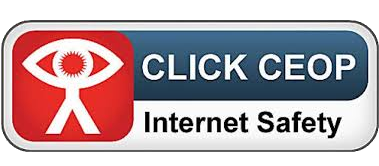Early Years
At Rigby Hall our Early Years pupils (Reception, Year 1 and Year 2) follow the Early Years Foundation Stage Curriculum. Learning is active, following pupil interests and has a high focus upon communication development as well as social skills, such as learning to take turns with others and learning to follow an adult agenda for a short period. There is a balance of child initiated play and adult led activities to allow the pupils to broaden their play and learning with the close support of adults. Adult led focus activities are increased over the course of the year, preparing the pupils for their next stage of their learning. Please click here to see the Early Years curriculum overview.
In Early Years, learning is developed through use of the children's interests, building upon patterns of their play (schemas). We promote engagement and learning experiences through lots of sensory play. Staff use observations to identify the next steps in a child's learning for which staff plan future experiences for the child.
We believe in building strong links with parent carers and share learning experiences through Tapestry. Parent carer's are also encouraged to comment and add observations of their child from home too to share at school.
We base our curriculum upon the Early Years Foundation Stage (Birth to Five Matters), which incorporates three core areas of learning:
•Communication and Language – Communication development is a key part of our curriculum, with staff work closely with the speech and language team to develop effective communication strategies for the individual pupil, whether that be intensive interaction, objects of reference, symbols or signing. In the class, all pupils experience a total communication approach, with use of simple key word language, signing, photos, symbols and objects of reference. We also develop our attention and listening through a range of fun and exciting small group listening games which the children love to engage in.
•Personal, Social and Emotional Development – supporting children in developing their confidence to access a wide range of learning opportunities, make positive relationships with staff and their peers, as well as learning to manage their feelings, being able to self-regulate and make the right choices in their behaviour. Children will have the opportunity to gain confidence in exploring new environments and build relationships with peers during Forest School sessions.
•Physical Development – supporting children’s fine and gross motor skills, incorporating cooking and PE lessons, as well as developing self-care and self-help skills, such as getting dressed and recognising toileting needs.
Our curriculum also focuses upon the following areas:
•Literacy – supporting children to make marks, which in turn leads to their increasing ability to write their name and letters, as well as instilling a love of reading, whether it be loving the sensory aspects of a board book, talking about images in picture books or learning to read simple words and sentences. Throughout the week we focus upon handwriting and mark making skills, one-to-one reading, as well as listening to stories, songs and rhymes.
•Mathematics – supporting children in their number knowledge through listening to and engaging in number rhymes and songs. We also expand our number knowledge through play based activities, learning to count, share and recognise numerals. In Mathematics we also develop our knowledge of shape, space and measure, including learning about money, size, pattern and position.
•Understanding the World – supporting children in their understanding of their own culture and that of other people through class based celebrations incorporating food and music. We learn about the environment we live in, both locally and in the World, exploring plants, animals and features of the environment. Children are also supported in their use of technology, incorporating battery operated toys, interactive technology in the sensory room, tablets, computers, cameras and many more technological resources.
•Expressive Arts and Design– supporting children in their use of tools and materials when engaging in art based activities, exposing them to lots of different textures - dry and messy! We also explore how we can make marks, use colour and use construction materials in our play. Children will also have opportunities to explore musical instruments and manage their body to move to music. We support children’s imaginative play skills through role play, whether it be in a ‘home corner’ or in an ‘aeroplane’ flying in the sky!
.PNG)
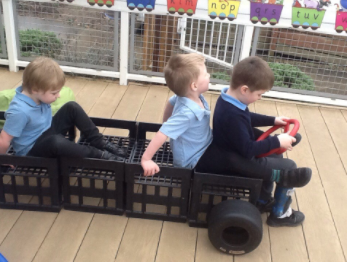
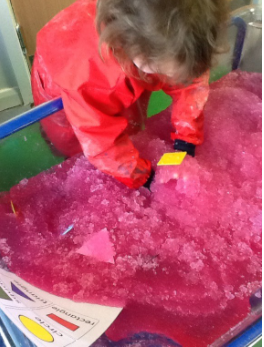
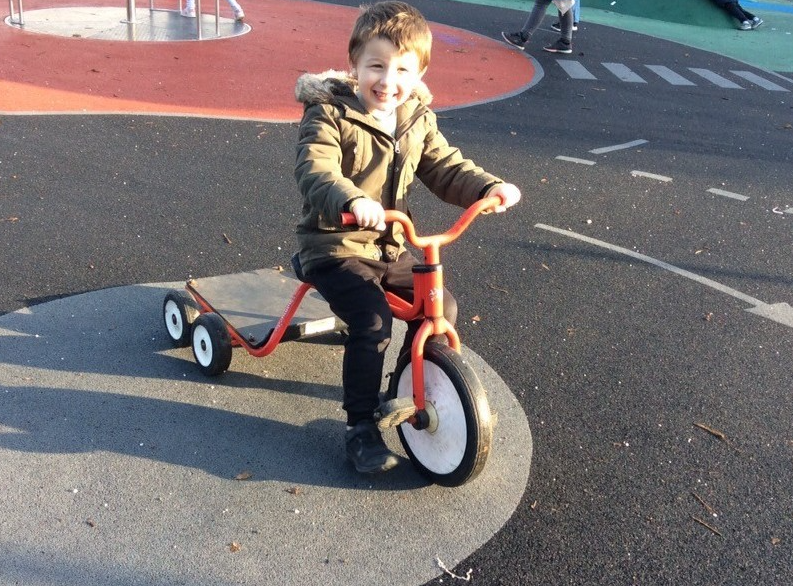
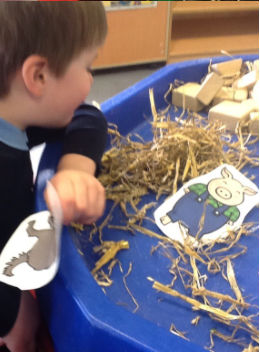
Early Years Pathway Progression Map




